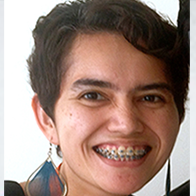Spending autumn, or as the Americans call it, fall, in Washington DC gave me a spectacular view of trees changing colours from green to red-orange. My memories of October/November back in Australia are associated with purple jacaranda trees, but today I sit to read and write this article in a park amid orange, red and green.
 Besides Halloween, October is also associated with the colour pink for Breast Cancer Awareness Month. Most companies supporting breast cancer awareness, treatment and research will fund gala dinners or campaigns using pink as their colour of choice. However, most of these campaigns run the risk of being misogynistic, taking the message away from saving women’s lives and focusing rather on women’s breasts.
Besides Halloween, October is also associated with the colour pink for Breast Cancer Awareness Month. Most companies supporting breast cancer awareness, treatment and research will fund gala dinners or campaigns using pink as their colour of choice. However, most of these campaigns run the risk of being misogynistic, taking the message away from saving women’s lives and focusing rather on women’s breasts.
The recent GrabCar "LOVE BOOBS, so does cancer" campaign is an excellent example. Combined with MyTeksi’s "What if boobs don’t exist" video as part of the campaign, they appear to take cancer lightly and reduce the value of women to having breasts. Never mind that opting to remove breasts through mastectomy would save women’s lives and halt the spread of cancer.
While the campaign team might justify say intentions are pure, ie. to increase awareness on breast cancer, such campaigns can be done better. Yes, they manage to grab people’s attention but in the same stroke, the campaign devalues women and signifies such a close-minded understanding of what cancer really is.
Losing our breasts due to mastectomy is a traumatic event, yes, but ensuring that more women are able stay alive and be healthy should be the ultimate goal. If only the team behind the campaign had taken into consideration a survey among women who are cancer survivors and their families, perhaps they would have came up with a better campaign.
Angelina Jolie had a pre-emptive double mastectomy and she is still one of the sexiest women alive. I think I do not need to elaborate on this point.
I do not solely blame GrabCar and MyTeksi for such campaigns. The "No Bra Day" campaign which also aims to raise awareness on breast cancer says that women should allow our "breasts be free".
Personally, I think such a thing has nothing to do with cancer, and I have the choice to wear a bra and still remember to conduct my monthly breast self-examination and get my cancer markers checked annually.
Yet, I am reminded that I am speaking from a privileged position here. I am not only educated and middle-class, I also have a personal family history of breast cancer.
My gynaecologist once said that I have the typical "privileged child" syndrome where I am able to access information and also afford health care. Despite not engaging in high-risk behaviour, I get my HIV and STI tests done annually simply because I am able to afford these tests.
I get so agitated over every kilo gained, every measurement from test results on my blood and urine samples, or whether there is any tiny thing wrong with my physical body that of course includes my breasts. Further, if God forbid I succumb to an illness, I am able to afford a doctor, treatment and even a therapist.
Having spent some time with women living with HIV (WLHIV) in Washington emphasises the position of privilege that I have. More often than not, chronic illness is more manageable when one can afford treatment.
To bring this a step further, the case of Angelina Jolie herself is an example of privilege. She is able to get the best care, medical opinions from various specialists, she can afford to have children biologically and through adoption and she has the love and support of her family. Being married to Brad Pitt is an added bonus.
Let me remind everyone that she was not diagnosed with breast cancer and made her decision based on genetic risk calculations after losing her mother to cancer.
Most women who are fighting to live and combating chronic illnesses do not have the same privilege. The group of WLHIV I spent time with had to deal with intimate partner violence, where their HIV status is often used as an emotional abuse to their self worth.
This is in addition to their ability to access care – in the US, if they can afford health insurance, they can afford antiretroviral therapy. If they are homeless or do not have stable jobs, such treatments that can save their lives remain out of reach.
While most of us women purchase pink jewellery or attend gala dinners to raise funds for cancer awareness this month, let us not forget the women who do not have our privileges. The least we can do is to not deny their value as women and as human beings through insufficiently researched and half-hearted campaigns.
Women are worth more than just our breasts. – October 28, 2015.
* This is the personal opinion of the writer or publication and does not necessarily represent the views of The Malaysian Insider.


Comments
Please refrain from nicknames or comments of a racist, sexist, personal, vulgar or derogatory nature, or you may risk being blocked from commenting in our website. We encourage commenters to use their real names as their username. As comments are moderated, they may not appear immediately or even on the same day you posted them. We also reserve the right to delete off-topic comments